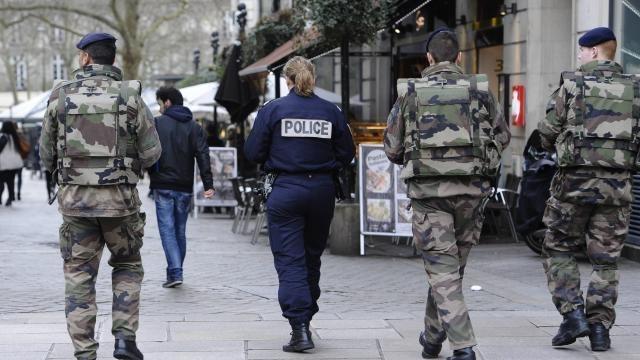Meilleure que Tinder ? Plan Sexe
Meilleure que Tinder ? Une nouvelle app de cul pour trouver des filles chaudes près de chez vous
Marre de Tinder, essayez cette alternative
Beaucoup d’hommes pensent que Tinder est la solution pour trouver rapidement des femmes près de chez eux. C’est faux. Tinder est simplement un site où vous rencontrez des célibataires. C’est beaucoup de discussions pour très peu de résultats.
Si vous êtes un homme qui aime passer des heures à tchatter avec des femmes pour passer le temps, vous n’allez pas aimer cet article. Si vous êtes un homme qui veut rencontrer rapidement des femmes qui veulent des plans sexe près de chez lui, alors la suite va vous plaire.
Une application plus efficace que Tinder pour des plan culs
Si vous aussi vous passez du temps sur Tinder à swiper pour rencontrer des femmes qui veulent juste un plan d’un soir, vous avez certainement remarqué que les résultats attendus n’arrivent pas. On vous fait croire que vous allez avoir des rendez-vous rapides près de chez vous mais c’est rarement le cas.
En fait, si, vous aurez peut-être des rendez-vous mais les filles que vous allez rencontrer voudront seulement discuter, et peut être même que vous leur payerez un verre. Ensuite, fin de la soirée. Vous avez perdu du temps et de l’argent, avec au mieux vous repartirez avec la promesse d’un prochain rendez-vous, qui ressemblera à celui-là …
Mais y a-t-il des femmes chaudes sur Tinder ? Sûrement quelques-unes. Allez-vous les trouver ? C’est moins sûr.
Allez-vous coucher avec elles le premier soir ? Certainement pas.
Tinder est un site d’annonces de rencontre relié à Facebook, les femmes ont donc peur de mettre qu’elles cherchent uniquement du sexe. Ensuite il y a beaucoup trop d’hommes sur Tinder et les filles ne veulent pas être reconnue par tout le monde. Alors, comment faire pour trouver plus rapidement des filles chaudes qui veulent uniquement des plans cul ?
Il faut aller sur des applications de rencontre plus sympas comme plansexe.com où les femmes se sont inscrites pour du sexe uniquement. Au moins, pas de discussions inutiles qui ne mènent à rien, les filles seront là pour la même chose que vous.
Vous voulez des plans cul ? Les filles présentes sur Plansexe.com ne cherchent que ça. Alors pourquoi perdre votre temps sur Tinder si c’est ce type de filles que vous cherchez ?
Si vous êtes un homme vous devez prendre le contrôle et arrêter de faire comme tout le monde. Vous voulez un plan cul gratuit ? Alors allez le chercher sur un des meilleurs sites, comme Plansexe.com.
C’est vraiment simple. Vous créez rapidement un compte et vous avez accès à toutes les femmes coquines de votre région qui y sont inscrites aussi.
Ces femmes ont eu le courage de s’inscrire sur Plansexe.com car elles ont envie de sexe avec des hommes près de chez elles. Elles ont envie d’hommes courageux et cash, qui savent ce qu’ils veulent.
Elles n’ont envie de perdre leur temps avec des gamins de Tinder, et vous, vous n’avez pas envie de perdre le vôtre à chercher des femmes comme elles. Il est temps de changer ce qui ne fonctionne pas, alors tentez l’expérience et inscrivez-vous sur Plansexe.com.
Sur Plansexe.com vous allez faire de belles découvertes. La moyenne d’âge des femmes est entre 25 ans et 29 ans. Les hommes inscrits nous racontent souvent la même histoire.
Ils créent leur profil, commencent à discuter avec des femmes près de chez eux, et finissent dans leur lit à les baiser toute la nuit.
Ça vous étonne ? Ça ne devrait pas ; toutes les femmes inscrites ici cherchent la même chose, des rencontres sexe ! Il y a des célibataires et des femmes mariées, et elles se sont inscrites sur ce site de rencontre gratuit uniquement pour avoir des rencontres coquines.
Arrêtez de penser que tous les sites de petites annonces sexy sont identiques. Tinder c’est un supermarché, vous y rencontrerez un peu de tout, mais pas ce que vous voulez. Plansexe.com c’est plutôt comme un grand sexshop, donc pas de prise de tête.
Les femmes à l’intérieur sont chaudes et aiment le sexe. Si je devais choisir comment avoir un plan cul rapide et près de chez moi, je choisirais un site où j’ai le plus de chance de rencontrer ce que je cherche. Donc certainement pas Tinder…
Moi aussi j’ai cru que Tinder c’était super pour rencontrer des femmes, mais j’ai toujours été déçu par le résultat. Premièrement, on passe trop de temps à essayer de chercher des filles chaudes. La grande majorité est là seulement pour passer des heures à discuter pour savoir si vous pouvez être une rencontre sérieuse.
Et même si on arrive avoir un rendez-vous avec ce genre de fille, ça se transforme toujours en galère. Rien n’est assez beau pour les petites princesses de Tinder. Deuxièmement, si vous avez la chance de tomber sur une femme célibataire et chaude, vous avez de grandes chances pour qu’elle soit très moche.
Désolé, mais c’est honnête. Je n’ai jamais rencontré de jolies filles sexy et ouvertes sur Tinder. Pourquoi ? Parce qu’elles ne perdent pas leur temps sur cette appli pour gamin.
Les vraies femmes chaudes et en manque de sexe savent où chercher, et c’est pour ça qu’elles s’inscrivent sur de vrais sites de rencontres pour adultes, où elles pourront trouver un homme près de chez elles pour les satisfaire sexuellement.
Si vous êtes malin, vous devriez faire comme elles. Pourquoi ne pas tenter votre chance sur un vrai site adulte où les femmes n’attendent que des hommes comme vous ? Ne laissez pas passer votre chance, allez chercher les femmes qui vous plaisent là où elles passent le plus de temps.
Vous voulez des femmes banales qui ne savent pas ce qu’elles veulent ? Allez sur Tinder. Vous voulez passer vos soirées à baiser des femmes chaudes qui veulent uniquement du sexe ?
Alors inscrivez-vous sur Plansexe.com. C’est aussi simple que cela. Vous seriez surpris du nombre de femmes qui sont sur le site.
Je paris qu’une de vos voisines que vous croisez souvent y est inscrite et sera ravie de vous voir aussi. Imaginez les nuits chaudes à baiser votre voisine sans même vous déplacer ! Ce genre de belle histoire arrive tous les jours aux membres de notre site, alors pourquoi pas vous. Si je pouvais vous recommander une action à faire aujourd’hui, ça serait de tenter votre chance sur Plansexe.com.
Inscrivez-vous et commencez à tchatter avec des femmes qui recherchent des hommes pour du sexe. Vous verrez, les conversations sont différentes. Pas de blabla inutile, les femmes n’ont pas peur d’engager la conversation, et leur sujet principal est de savoir si elles pourront vous rencontrer bientôt pour que vous puissiez venir les baiser chez elle. C’est pas la belle vie, ça ?
Pour résumer, oubliez Tinder qui est rempli de femmes qui veulent juste discuter. Inscrivez-vous sur Plansexe.com est commencez dès aujourd’hui à tchatter avec des filles chaudes près de chez vous. Si c’est un plan baise que vous cherchez, vous ne le regretterez pas !





